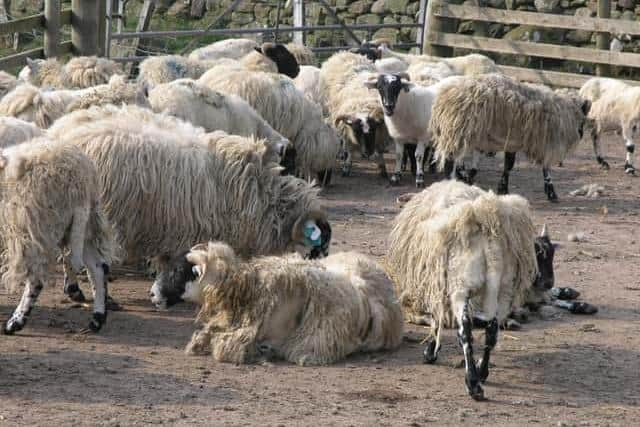'Assume all incoming sheep have scab', as Northern Ireland survey reveals scale of problem
and live on Freeview channel 276
Published in August, the survey found widespread cases of scab among flocks, with 36 per cent of farmers indicating they had at least one outbreak of sheep scab in their flock within the previous five years, and 39 per cent believing scab was introduced to their flock via a purchased animal.
Some farmers also reported their most recent outbreak had cost them over £2,500, although costs were variable.
Advertisement
Advertisement
Researcher and vet, Paul Crawford, said the results highlighted knowledge gaps that needed to be addressed to improve sheep scab control.


Adopting strict quarantine procedures for any incoming sheep and understanding the entire contamination route are vital to curb its spread.
Mr Crawford explained: “The sheep scab mite can live off sheep for 16-17 days, so quarantine isn't just as simple as putting sheep in a separate field; it is about understanding the entire contamination route. This includes everything sheep come into contact with from the trailer through to fences in the yard.”
When in quarantine, Mr Crawford recommended that animals remain there for 3-4 weeks and two weeks after arrival (no earlier), blood testing 12 animals from each group using the blood ELISA test.
Advertisement
Advertisement
This would indicate whether the group of sheep had been exposed to scab and whether treatment was necessary. The test costs about £84 for 12 animals, excluding vet fees and P&P.
Treatment Options
The SCOPS recommended treatment choice for scab includes:
- Plunge dipping using an organophosphate (OP) dip.
- Using an injectable group 3-ML such as CYDECTIN 2% LA. This treats scab infestations and prevent re-infestations for 60 days from a single injection.
- Treatment choice comes down to the most practical option for that farmer and ensuring the product is administered correctly according to its guidelines.
“The main thing when treating for scab is that you do it properly, whether using an injectable or a dip,” Mr Crawford stressed.
Advertisement
Advertisement
SCOPS has worked with Zoetis, the makers of CYDECTIN 2% LA, to produce a Code of Practice for using injectables.
Vet Ally Ward, from Zoetis, explained: "Some injectables, such as doramectin or ivermectin, do not have any licensed persistency. This means sheep can pick up scab mites immediately after treatment. So, if one of these is used, the treated sheep should be put into a 'clean' field and not returned to the same field they have just come out of. It is also essential to treat all sheep in a flock/mob on the same day.
"Other products, such as CYDECTIN 2% LA, offer 60 days protection, so clean pasture is not required. However, it is important treatments are only used when necessary and as part of a whole farm health plan constructed with your vet or animal health advisor,” she added.
A £220,00 project is now underway in Northern Ireland to help tackle the disease. The money is being used to fund farmer meetings, vet meeting, on-farm visits and data collection. For more information email [email protected]